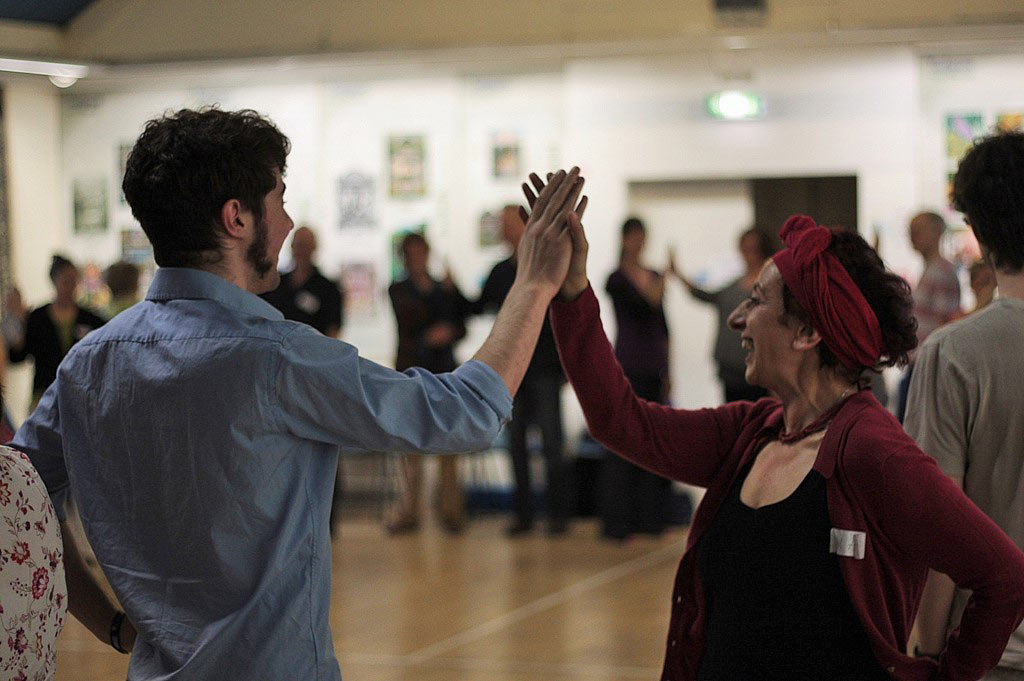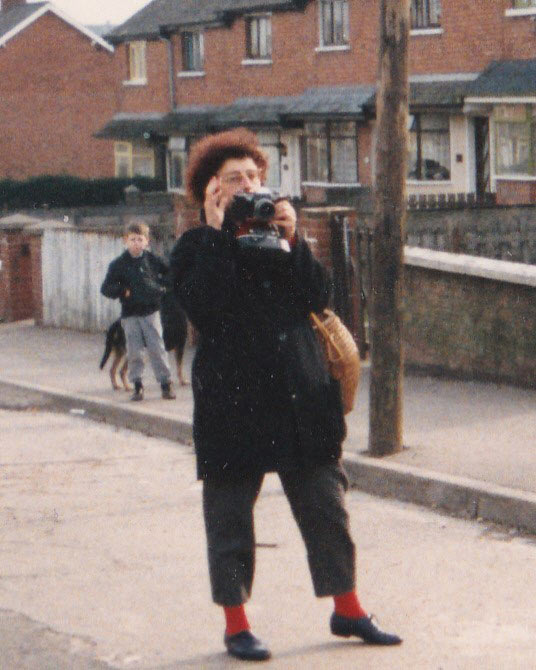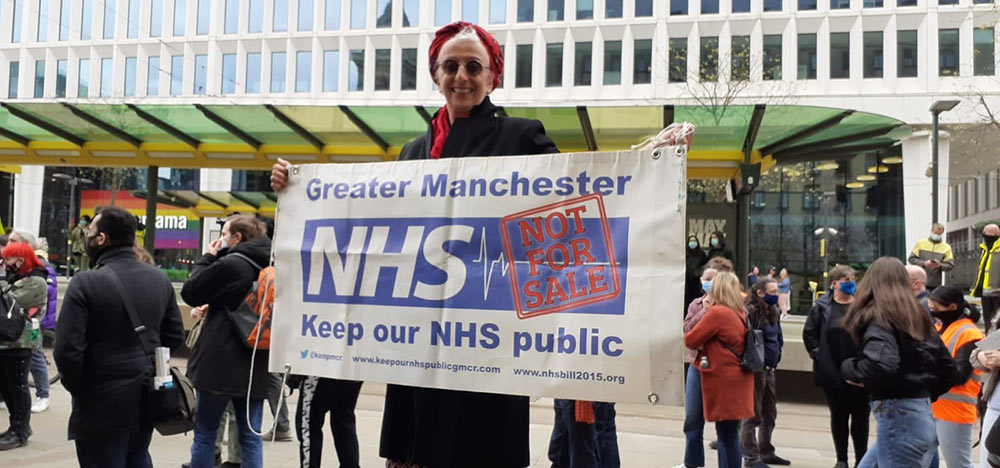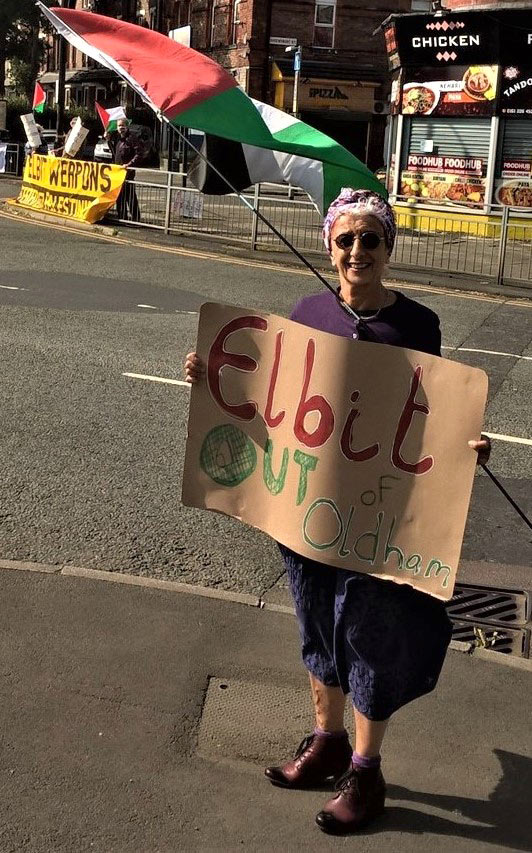Swipe to read
Pia describes her ‘incipient feminism’ during an incident in school.
Read Transcript
“Perhaps when I was nine, we were taught by the rabbi. I remember, every Friday one of the older pupils used to give a little explanation of something in the reading. You know how you have a reading from the Torah on Saturday. So, I was the first girl. I think I insisted! That I could give the little explanation. So, looking back at it, I recognise my incipient feminism. And that was true of our household. There was no question that you didn’t have opinion. You had to fight to get your voice heard but you got your voice heard as a girl or as a woman … That goes back to my mother being a working woman all her life. Seeing herself in that light.”
Pia describes her feeling towards her Jewish faith as a child and how that changed.
Read Transcript
“It was just what I did. I was always good at studying. So went to, besides going to school. I think this must have been when I was 11. I started going to cheder. Three or four times during the week and then on Sunday morning. Even me, and I’m quite a rebellious sort, I just was accepting of it. I think I was a happy kid actually. I was happy doing it. I know that it bored me but I didn’t think no I won’t do it. I didn’t think that … I remember at the age of 12 deciding that I didn’t believe in God. But it didn’t change an iota my behaviour because the religion wasn’t tied up with belief. The religion was tied up with everyday practice … And I liked the songs … On Saturday … we would sit around and have this lovely Shabbos meal with a white cloth … and we’d be singing all the songs and I loved that and I loved the food, a bit too much … It had a lot of warmth and perhaps stability and lots of mixing with people and sort of being known in a community that I think satisfied me. Tied in with this not believing in God anymore at a very abstract level. It became to be part of my own little mantra that I wasn’t going to live as they did. What that involved I don’t know. And as I got older … it became more and more evident to me that I would need to leave them and leave the community.”
Pia describes her world view – shaped by membership of the International Marxist Group.
Read Transcript
“I was a loyal party member of the International Marxist Group for at least ten, fifteen years … Being a member would mean, one, that you would pay something to the organisation. That you would be spending most of your time, not at work but within union stuff but also outside work in planning campaigns. Thinking about what was necessary to make a revolution … Reading what they were doing elsewhere. Reading what was going on in the world … You got a very different view of the world than you were going to get from the press … In my first year of teaching, I was going to meetings four or five times a week and once of a weekend. I would sell newspapers every Saturday morning outside central railway station … I loved it. I loved it. I loved selling papers on the street. I think it was that interaction …
What is it you wanted to achieve?
Worker’s revolution. Where workers were in power with the oppressed. That would be no border, no refugees, or immigrants. No racism, no poverty. I would still like that. I haven’t changed really my politics expect that there is not an international organisation and movement.”
Pia doesn’t feel part of an ‘organised’ Jewish community in Manchester. Here she explains why.
Read Transcript
“What was the attraction of the organised Jewish community for me? The liberal Jewish community which tends to be in the South was also very conservative. And if people were individually less so and more socially aware they would do it very quietly. They weren’t seen as the representatives of the organisation … In that group [Jews for Justice for Palestinians] we were active in that group, and we did a lot of talking and a bit of consciousness raising amongst ourselves. But we really attempted to open up a debate within the Jewish community. And were singularly unsuccessful. In fact, treated really hostilely by all the Jewish community. We couldn’t find one space with the Jewish community to even engage in any sort of dialogue … So we held meetings. We weren’t attacked by the Jewish community or by Zionists as we would be now but we couldn’t give our publicity out etc … At its height there was about 15 to 20 of us. And most of us were active … Most of what we were trying to do was to actually get some debate within Jews. We were actually trying to have a debate, a discussion. We are representing Jews with different ideas and you are ignoring us. We didn’t grow and so the national organisation still exists, but we broke up.”
In later years Pia organised ‘liberation seders’ in her home. Here she describes the impact these had on her Jewish identity.
Read Transcript
“I was more socially wanting to celebrate my Jewishness, so I organised liberation seder nights, on Passover. Here we had about 40 people in the room sitting down and eating. I was doing more Jewish-y, particularly around food but it wasn’t just that … It became more important … Because of my orthodox upbringing I knew much more about the religion, the symbolism than other people did. And so, I did quite a lot of the formal stuff, according to how you were supposed to do it. But we had our own texts as well … You looked at the liberation of the Jews, from the Red Sea and out of Egypt as a metaphor for liberation of the Palestinian people in the same area … That was a major thing in Jewish identity … Lots of discussions about it where my Jewish identity was more important … I’m a single, Jewish, communist. Yes ok, if you want to put it like that.”



